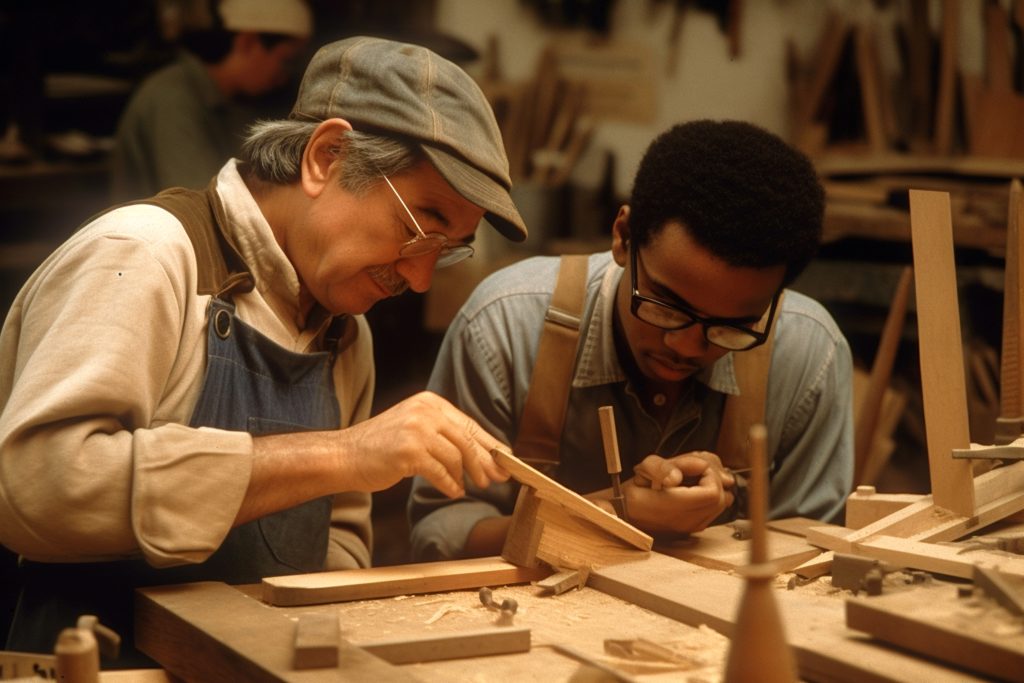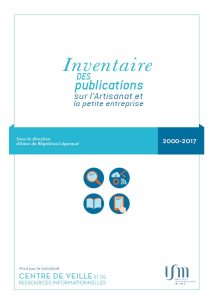Réseau Artisanat Université® (Annales 2008-2009)
Club des Dirigeants du Réseau Artisanat-Université® de Midi-Pyrénées
Frédérique Allard, Maître de conférences, Université Paul Sabatier-Toulouse III, LGC / Pascale Amans, Maître de conférences, Université Paul
Sabatier-Toulouse III, LGC / Ketty Bravo-Boussy, Maître de conférences, Université Paul Sabatier-Toulouse III, LGC / Robert Descargues, Professeur
des Universités, Université Paul Sabatier-Toulouse III, LGC / Stéphanie Loup, Maître de conférences, Université Paul Sabatier- Toulouse III, LGC
Initié en 2002 par l’Institut Supérieur des Métiers, le Réseau Artisanat-Université® associait, au sein de clubs régionaux, universitaires et dirigeants d’entreprises artisanales. Le projet avait a pour objectif de développer l’effort de recherche appliquée sur l’artisanat et la petite entreprise et de faciliter les collaborations entre deux sphères qui n’avaient guère jusqu’ici l’occasion de collaborer : l’artisanat (entrepreneurs dirigeants et responsables socioprofessionnels de l’artisanat) d’une part, et l’enseignement supérieur et la recherche (universitaires, chercheurs, doctorants).
Rédigés par les équipes universitaires parties prenantes, les articles qui composent ces Annales sont une synthèse des cycles de travail conduits par les Clubs.
Résumé : De nos jours, l’entreprise artisanale est confrontée à une problématique complexe : l’évolution des métiers et dans le même temps la prévision d’une cession massive d’entreprises au cours des dix prochaines années laissant supposer une perte de savoirs. Aussi ce cycle nous a permis d’étudier
le partage et la transmission du savoir artisanal. L’objectif est de comprendre comment partager et transmettre le savoir artisanal dans le but de cerner le processus de mise en oeuvre des dispositifs de transmission des savoirs, afin d’avoir la capacité de l’améliorer. Il est important de déterminer ce qui représente des freins, ce qui favorise le bon déroulement, l’implication des acteurs et ce qui fait que certains mieux que d’autres parviennent à partager leur savoir. En effet, au-delà des seuls savoir-faire et compétences techniques, le savoir artisanal apparaît comme pluriel et collectif. La synthèse de trois études menées auprès de jeunes en formation, de futurs artisans potentiels et de formateurs, nous permet de souligner que le savoir artisanal est composé de trois éléments : des connaissances, des pratiques et des comportements. Son acquisition se fait au travers de trois principaux types d’apprentissage non exclusifs, à savoir la formation initiale, la formation continue et l’apprentissage informel ou empirique. Chacun des acteurs du secteur des métiers joue un rôle central au sein du processus d’acquisition, de partage et de transmission du savoir artisanal.
Mots clés : Métier, Savoir artisanal, Savoir-faire, Spécificités
Summary : Sharing and passing on traditional skills
Craft businesses today face a complex situation: the evolution of traditional trades and, at the same time, the mass transfer of undertakings forecast for the next ten years, bringing with it a loss of know-how. This cycle has given us the opportunity to study the sharing and transmission of traditional skills. The aim is to understand how traditional skills are shared and passed on, with a view to outlining the process whereby skill-sharing mechanisms are put in place, in order to be in a position to improve it. It is important to determine what hinders skill sharing, what makes for a smooth process, the involvement of the actors, and why some share their know-how more successfully than others. The fact is, beyond technical expertise and know-how alone, traditional skills are actually a
plural, collective affair. This summary of three studies carried out with young people in training, potential future artisans, and trainers, highlights the fact that traditional skills are composed of three elements: knowledge, practices and behaviour. They are acquired through three main types of non-exclusive learning: initial training, continuing training, and informal or empirical learning. Each actor in the craft sector plays a central role in the process of acquisition, sharing and transmission of traditional skills.
Keywords: trades, traditional skills, know-how, specific aspects.







